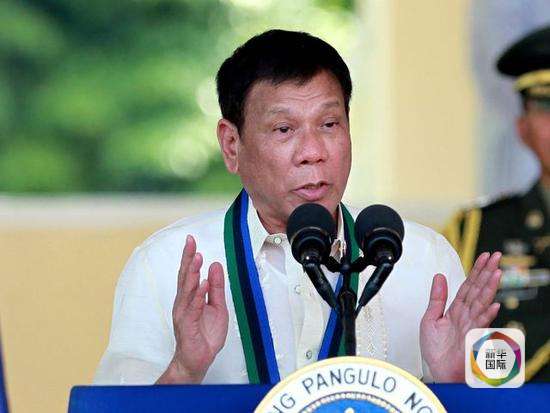
Photo: Xinhua
Bangkok (People's Daily) – Philippine President Rodrigo Duterte signed on Monday a law that aims to improve the overall business environment in the country by making the process of putting up and running a business easier and more efficient.
"This law will introduce simplified requirements and streamline procedures that finally spare our people from intolerable waiting time and long lines of frontline government agencies," Duterte said in a speech during the signing ceremony at the presidential palace.
Duterte’s signing of the Ease of Doing Business Act (EODB) and Efficient Government Service Delivery Act (EGSDA) of 2018 was welcomed by the country’s trade department and business chambers, saying that streamlined government processes would improve attractiveness to investors.
“Under the EODB/Efficient Government Act, businesses can expect streamlined processes, reduced processing times from all government agencies, including government-owned and controlled corporations (GOCCs),” Philippine Trade Secretary Ramon Lopez said in a statement.
EODB aims to shorten the number of days in processing permits and licenses for all business-related transactions in the Philippines.
It also aims to impose stricter rules, which include a two-strike policy on erring government officials who failed to comply to issue permits within a given period.
The law mandates government agencies to comply with prescribed processing times. In particular, simple transactions should be completed within three working days, seven working days for complex transactions, and 20 working days for highly technical transactions.
The EODB-EGSDA Act, which amended the Anti-Red Tape Act of 2007, requires all local government units (LGUs) to streamline procedures for the issuance of business permits, clearances and other types of authorizations by implementing unified business application forms.
LGUs were mandated to set up business one-stop shops and the law also provides that barangay clearances and permits be issued at the city or municipality to speed up transactions.
The law also calls for the creation of a Central Business Portal that will receive and capture data on business-related transactions and a Philippine Business Databank that will provide LGUs and national government agencies with information to verify the validity and existence of businesses.
The Philippine Chamber of Commerce and Industry (PCCI) said the law would “put teeth” into the administration’s promise of reducing bureaucracy and corruption.
“It will especially help and support the medium, small and micro enterprises who are burdened by old and new compliances,” PCCI Chairman George Barcelon said.


